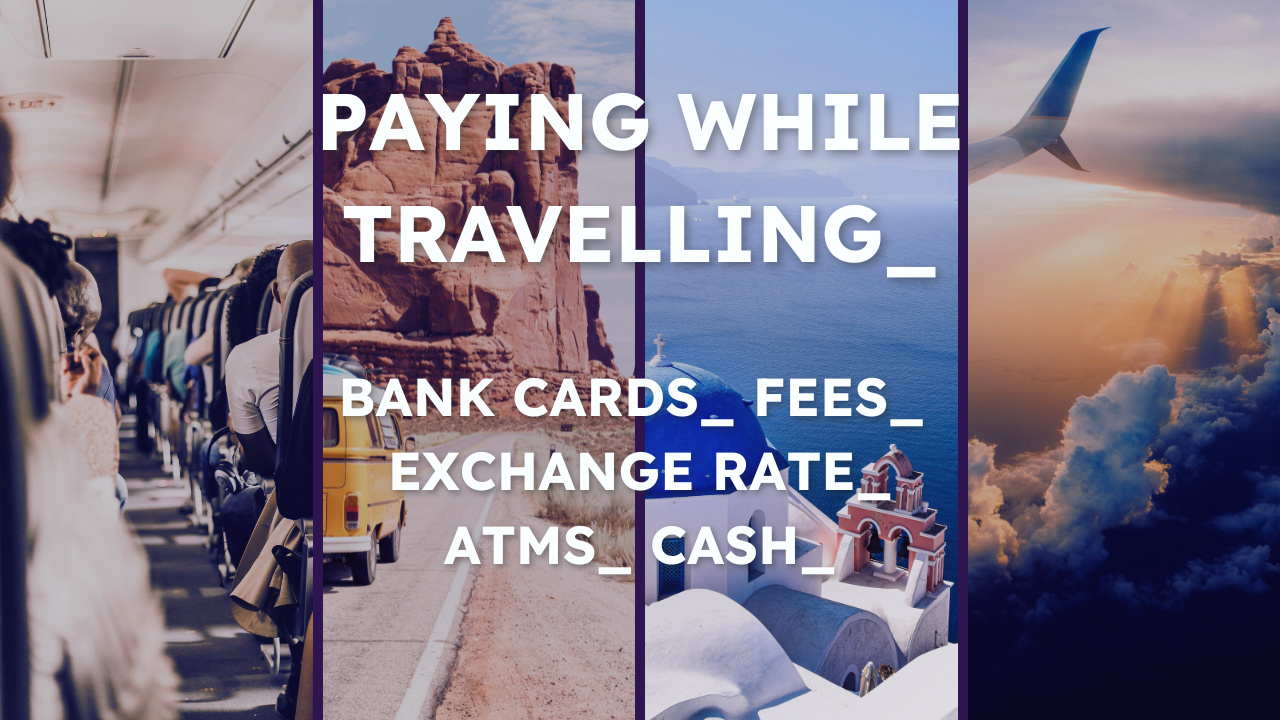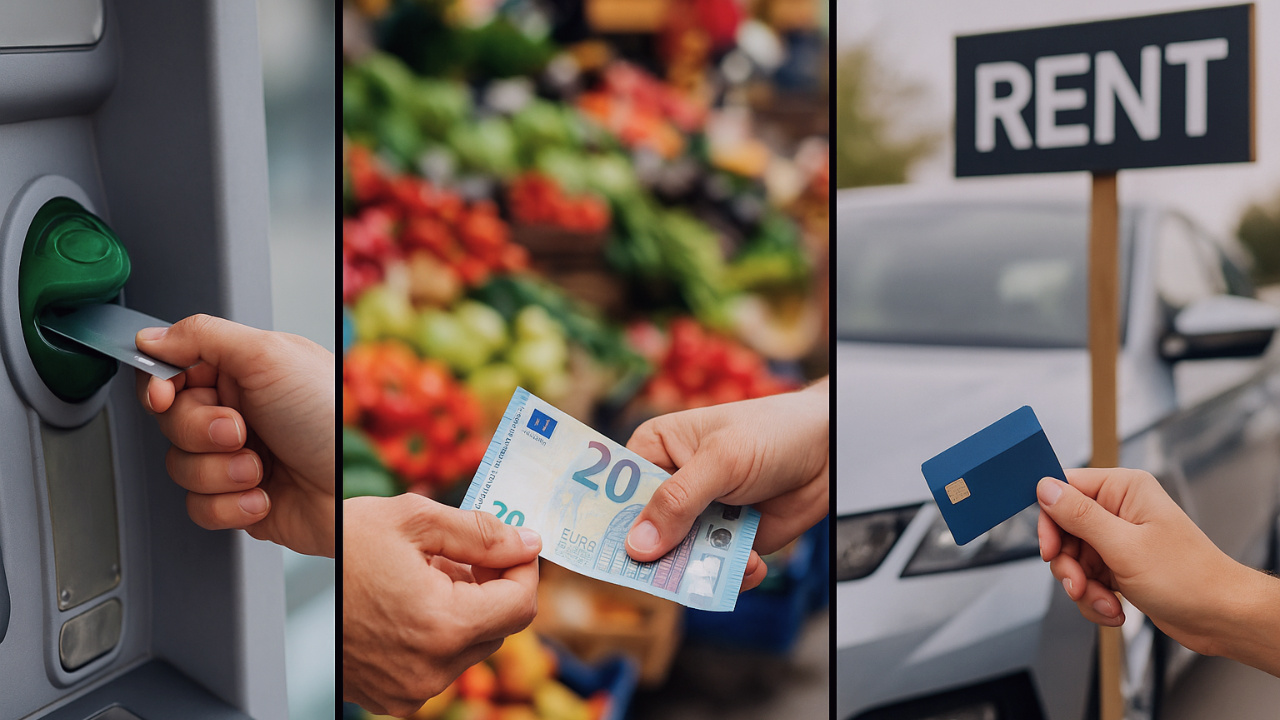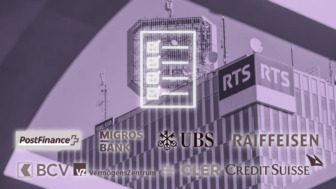
Best Card for Traveling? Exchange Rates? ATM Withdrawals? Follow the Guide!
While traveling, a simple payment or withdrawal error can cost 10 to 30 CHF in avoidable fees, sometimes more. Unfavorable exchange rates on cards, surcharges on withdrawals, hidden margins… there are many pitfalls, especially outside the euro zone.
This article compiles tips and the best card combinations for traveling. Objective: pay without getting ripped off and without wasting time comparing everything yourself.
Why Does it Sometimes Cost so much to Pay Abroad?
What we pay abroad isn’t just for purchases: we also pay for how we pay for them. And that changes everything.
There are Three Main Sources of Fees:
1. The Applied Exchange Rate
Each payment or withdrawal in foreign currency is converted to CHF.
But the rate used isn’t always the market rate:
- Banks apply their own rates, often less favorable (2 to 3% built-in margin).
- Some cards (Revolut, Wise) use the interbank rate, without margin → much more advantageous.
2. Bank Fees (Hidden or Visible)
They vary depending on the type of card:
- 💳 Classic credit card: often 1 to 2.5% fees per payment.
- 💳 Swiss debit card: sometimes fixed fees per transaction, plus margin on the rate.
- 💳 Neobank card (Revolut, Neon, Wise…): often 0 CHF if you stay within the plan limits.
3. Local Fees (not Always Visible)
- Foreign ATMs may apply a fixed surcharge.
- Some terminals offer to pay in CHF. To be avoided (see below).
- Weekend: specific exchange fees with Revolut, Wise, etc.
Payment + Withdrawal + Reservation
- Card payment: limited fees if it’s a good card.
- Cash withdrawal: often the most expensive item (especially with credit cards).
- Online booking (hotels, flights): sometimes charged in another currency with fees to expect.
What to Remember:
- It’s not the expenses that are expensive, but the conditions under which we pay for them.
- There are several levels of cumulative fees: you need to know the right tools to bypass them.
Which Payment Methods to Use while Traveling (and which to Avoid)?
This is the mandatory question for every prudent traveler: when preparing for departure, we wonder which card to take, how much cash to bring, and what to expect on site. Except that between invisible fees, hidden limits and differences depending on countries, not all cards are equal.
Here’s what each solution concretely allows and what it might cost you.
Cash
Some situations still require having a little cash on hand — even with a good card in your pocket. It’s no longer the norm everywhere, but it remains essential in several countries.
Still necessary in some countries or situations:
Japan: many small restaurants or accommodations don’t accept cards.
Morocco, Egypt, Turkey: common use in taxis, souks, small businesses.
Latin America: often essential for transport, tolls, markets.
Southeast Asia (Cambodia, Vietnam, Laos): some places don’t have terminals or apply a card surcharge.
✘ Exchange is often disadvantageous if withdrawing or exchanging on-site without an optimized card.
✘ In case of theft or loss, no protection, no refund.
Plan for 100 to 200 CHF in local equivalent for the beginning of the stay (transportation, first meals, tips), but avoid converting everything at once.
Credit Cards
You can travel perfectly well without them… until you’re asked for a car rental deposit or a hotel imprint. That’s when the credit card becomes essential again.
✔︎ Necessary for car rental, hotel booking, deposit in Anglo-Saxon countries or online.
✘ Very expensive withdrawals (e.g., 3.5% + fixed fee of 5 CHF).
✘ Often less favorable exchange rate (built-in margin).
Keep as a backup, but avoid for everyday expenses or withdrawals.
The Classic Swiss Debit Card
It’s often the card you already have in your wallet. But abroad, it rarely becomes a good choice, except as a backup.
✔︎ Can be useful, especially if activated for international use
✘ Expensive outside Switzerland: fixed fees or % on each transaction, opaque rates
✘ Withdrawals outside CH = double penalty (Swiss fees + local ATM fees)
To be set aside unless urgent (to be used only as an emergency reserve).
Cards from Neo-Banks (Radicant, Alpian, Revolut, Neon, Wise, Yuh…)
This is the card to have for smart travel. Quick to open, simple to manage, with no (or almost no) fees if you know how to use it.
- Often fee-free payments abroad.
- Interbank exchange rate (without markup or very low markup).
- Well-designed mobile app, instant blocking, quick support.
- Limited limits in free version (e.g., Revolut Free: 200 CHF/month for withdrawals).
- Weekend exchange fees (often +0.5 to 1% for Alpian, Revolut, Wise).
This is the core of the travel solution: a well-used neo-bank card can save 30 to 100 CHF per week.
The Best Cards for Traveling in %%Currentyear%%
When traveling, certain cards help reduce hidden fees: exchange rate margin, payment commission, fixed withdrawal fees, etc. Here is a clear comparison of the most suitable solutions in 2025, depending on your usage.
Comparison: Swiss Cards that Help save Fees Abroad
| Card | Exchange Fees | Withdrawals abroad | Travel insurance | Ideal for | Key points |
|---|---|---|---|---|---|
| Radicant | 0% (interbank rate) | CHF 2 / withdrawal | ✔︎ | Travel outside Europe without cash | ✔︎ No fees on payments. ✘ No free withdrawals. |
| Alpian | (CHF/EUR/USD/GBP) 0.2% weekday / 0.5% weekend (on Visa rate) | 2.5% of the withdrawn amount | ✘ | Europe, USA, UK, multi-currency payments | ✔︎ Very competitive rates. ✘ Physical card is not free (60 CHF). ✘ Expensive withdrawals outside Switzerland. |
| Revolut Free | 0% up to 1,250 CHF/month | 200 CHF free/month | ✘ | Short stays, small budgets | ✔︎ Interbank rate. ✘ Weekend fees. |
| Revolut Plus | 0% up to 2,500 CHF/month | 400 CHF free/month | ✘ | Frequent travel, families | ✔︎ Doubled limits, very comprehensive app |
| Wise | 0% (real rate) | 2 free/month, then 1.75% | ✘ | World tour, multi-currency | ✔︎ Conversion at real rate. ✘ Limited cash. |
| Neon Free | ~0.4% (Mastercard rate) | 2 withdrawals/month included (outside CH) | ✘ | Europe, occasional use | ✔︎ Reduced fees. ✘ Exchange rate could be better. |
| Neon Metal | ~0.4% (Mastercard rate) | Unlimited worldwide withdrawals | ✔︎ | Regular travels outside Europe | 15 CHF/month, insurance included |
| Yuh | ~1% | CHF 4.90 / withdrawal | ✘ | Occasional payments | ✔︎ Free card, ✘ Very expensive cash. |
| CH credit card | 1.5–2.5% + margin | 3.5% + fixed fees | ✔︎/✘ depending on offer | Deposits (cars, hotels) | Keep only for guarantees |
Which Neon Plan to Choose According to your Needs?
Neon offers several plans, but not all are relevant abroad. Here’s a summary based on your usage:
| Usage profile | Recommended plan | Why It’s Suitable |
| Holidays in Europe, Simple Payments | Neon Free | 0% on payments + 2 withdrawals/month included abroad |
| Local use, withdrawals in Switzerland | Neon Plus | Free withdrawals in Switzerland, but not abroad |
| Regular travels outside Europe | Neon Global | Insurance package + reduced fees on payments and withdrawals |
| World tour or frequent travels | Neon Metal | Only plan with free withdrawals worldwide |
Only Neon Free and Neon Metal are truly optimized for use abroad. The others are suitable for local or mixed use, but quickly become limited once you leave Europe.
Choose your Payment Methods According to your Profile
There is no one-size-fits-all solution. But there are simple and effective combinations depending on your situation, to limit travel fees without multiplying accounts or changing banks.
For a Swiss Resident on Holiday (EU or Non-EU)
No need to change everything: just add a well-thought-out secondary card for foreign currency payments. The goal is to limit fees while keeping a classic Swiss card for reservations.
- Radicant, Alpian, Revolut (Free/Plus) or Wise for all on-site payments.
- Swiss credit card (e.g., Cornèrcard, Cumulus Mastercard) for deposits.
Radicant offers the interbank rate without any markup and charges no fees on foreign payments, even outside Europe. The exchange rate offered by Alpian is more attractive than Revolut free once the CHF 1250.- threshold is crossed, with the possibility of holding multiple currencies (CHF/EUR/USD/GBP). Revolut and Wise apply the interbank rate with a slight markup.
For Swiss Cross-Border Workers (Salary in CHF, Expenses in EUR)
The need is twofold: receive a salary in francs, but avoid conversion fees when spending in euros (or other currencies while traveling).
- Yuh for receiving CHF without fees.
- Revolut or Wise for converting and spending in EUR.
- Free EUR account in France (e.g., Boursorama) for transfers and withdrawals in the eurozone.
You can receive your salary on Yuh, then transfer it to Wise or Revolut to benefit from the real rate. This avoids cumulative fees on payments or withdrawals in EUR.
A French account remains convenient for local withdrawals or transfers.
For Travel outside Europe (USD, Asia, Latin America…)
Banking fees are higher outside the eurozone: unfavorable exchange rates, surcharged withdrawals, hidden margins. It’s better to have a card designed for this.
- Radicant, Alpian, Wise or Revolut Plus for payments in local currencies.
- Swiss credit card as backup for reservations or unexpected expenses.
Radicant charges no fees for payments, even in exotic currencies.
Wise allows storing local currencies (USD, THB…) and converting them at a good rate. Alpian allows managing multiple currencies (CHF/EUR/USD/GBP) from your Swiss account with an interbank exchange rate marked up only by 0.2% on weekdays (0.5% on weekends). Revolut Plus allows doubling the limits and avoiding surcharges from the first weekend.
Free withdrawals are often capped, so it’s better to plan for some cash upon arrival.
For Long-Term Travelers / World Tour
When you’re traveling for several months, you need a reliable, flexible solution capable of adapting to all currencies without breaking the bank.
- Wise as the main card for payments and conversions in more than 50 currencies.
- Visa/Mastercard credit card for guarantees and unexpected expenses.
- Backup Revolut to expand limits or secure a second card.
Wise allows storing currencies directly (USD, EUR, JPY…) and avoiding urgent conversions.
Revolut expands possibilities in case of reaching limits or if you lose a card.
You can also load some CHF, EUR, and USD before departure to avoid last-minute fees.
Student or Low Budget
The goal is to “avoid bank fees abroad without paying for a subscription or opening multiple accounts”.
- Revolut Free or Wise for daily payments.
- Radicant if you want a Swiss card without hidden fees.
- No need for a credit card, unless booking with a security deposit.
Revolut Free charges nothing up to “1,250 CHF/month, which is sufficient for most stays. Wise allows you to store or convert currencies at the real rate, without monthly fees. Radicant works well for payments, but doesn’t allow free withdrawals. It’s better to avoid Neon or Yuh abroad: they’re not very competitive, especially for withdrawals.”
For Car Rental or Hotel with Security Deposit
Even if you pay for everything with neo-banks, some situations still require a credit card.
- Swiss credit card (Cornèrcard, Swisscard, etc.) for security deposits
It’s only used for this: neo-banks are often refused for deposits. It’s better to have one on hand, even if you only use it once.
Classic Mistakes that Increase the Bill and how to Avoid Them

Even with an optimized card, certain habits can increase the bill. Here are the most common mistakes… and how to avoid them without complicating your life.
1. Choosing to Pay in CHF Instead of the Local Currency
The terminal often offers to pay in CHF “to avoid conversion”. Bad habit.
✔︎ Always choose the local currency (EUR, USD, THB…)
✘ Never accept payment in CHF outside of Switzerland
2. Withdrawing from the Wrong ATM
Not all ATMs are equal. Those in tourist areas or managed by private providers often apply hidden fees or a biased rate.
✔︎ Prefer ATMs of traditional local banks
✘ Avoid ATMs of brands like “Euronet”, “Travelex”, etc.
3. Withdrawing or Converting on Weekends with Revolut
Revolut applies a margin of 0.5% to 2% on conversions made between Friday evening and Sunday evening.
✔︎ Convert currencies during the week if possible
✘ Avoid Revolut for urgent conversions on weekends
4. Ignoring Free Usage Limits
Some cards are fee-free… but only up to a certain amount. Beyond that, fees apply.
✔︎ Check the monthly limits (e.g., 1,250 CHF for Revolut Free)
✘ Don’t assume a card remains free without limits
5. Not Having a Real Credit Card for Deposits
Debit cards are often refused for security deposits (cars, hotels).
✔︎ Keep a Swiss credit card for deposits and unexpected situations
✘ Don’t rely solely on a direct authorization card
What to Remember to Optimize your Travel Expenses:
- You need at least 2 complementary cards: a neo-bank for payments, a credit card for deposits.
- Fees don’t come from the country, but from using the wrong card or at the wrong time.
| Bad habit | Why it’s expensive | What to do |
| Paying in CHF abroad (payment terminal). | Inflated exchange rate up to +5%. | Always pay in local currency |
| Withdrawing cash with a credit card. | Fixed fees + exchange fees. | Use a neo-bank debit card for withdrawals. |
| Using an ATM in an airport or supermarket. | Hidden automatic commissions. | Look for an ATM of a real local bank. |





